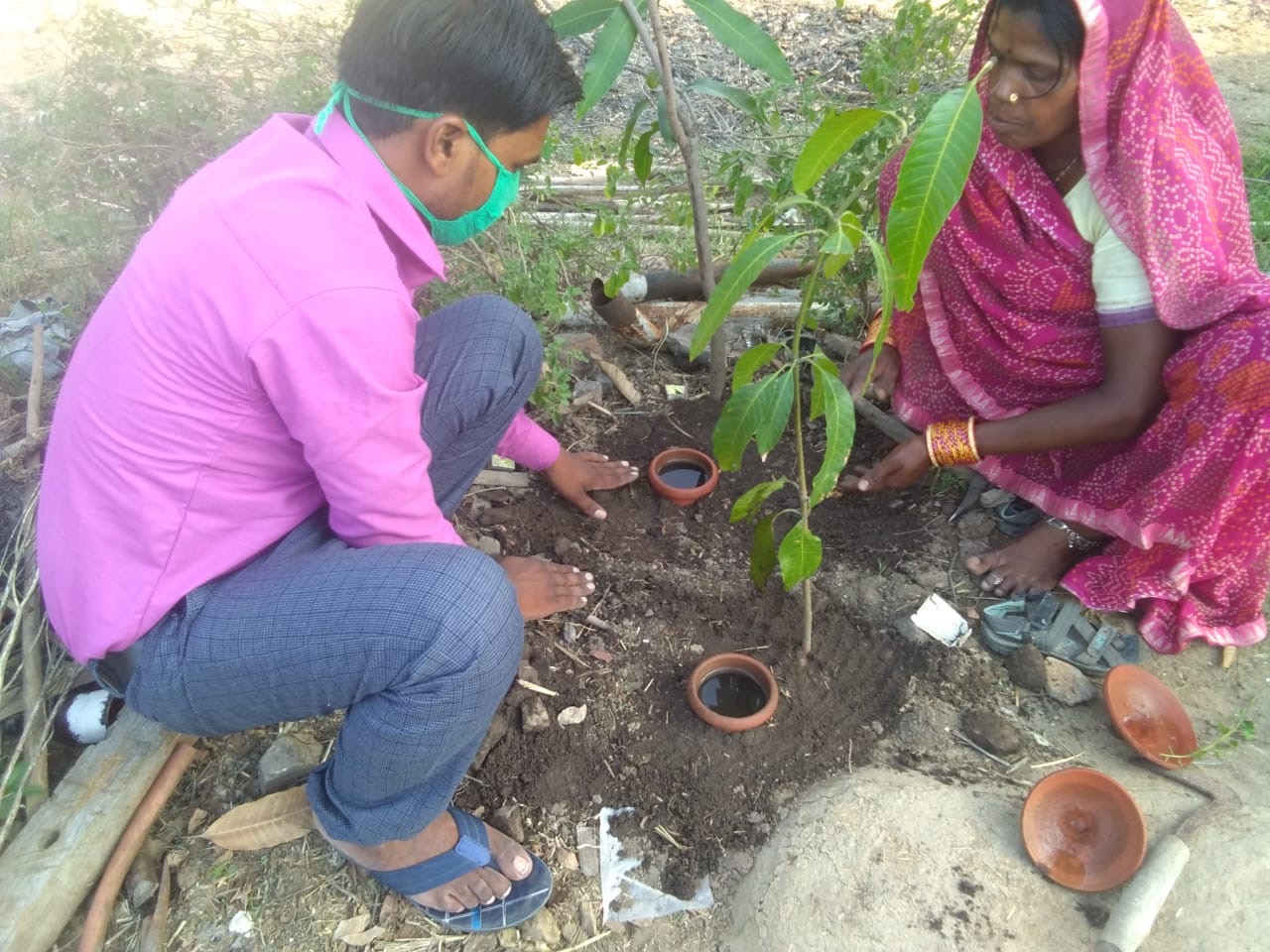
“I was introduced to this clay pot irrigation this year with the support of SAFBIN team. It’s very simple and unique. Earlier, it took at least 1-2hrs for me to water the whole plants but since I adopted this technique, my plants need water only twice a week. After this I realised how much water I could save,” shares Santosh Yadav, SHFC member of Ratanpura of Sagar District in Madhya Pradesh shared about Olla experience
Water is one of the key essential for crop production, indeed for survival itself. Madhya Pradesh, one of the largest states in the country, suffers from inadequate availability of irrigation water, mainly because of its undulating topography, high surface runoff, and lack of surface storage facilities. Despite all efforts to increase the irrigated area by way of constructing big irrigation dams, still, there are areas which need immediate attention for irrigation. Big dam and water harvesting structures can help irrigate land in specific areas by canal irrigation, however, remote areas where no rivers flow are deprived of irrigation facilities. In recent years, cases of extreme water shortage and even droughts have been reported and sadly, smallholders are always the worst hit by the occurrence. The optimal management of water resources which will not only conserve water but also help farmers paddle through erratic situations are the need of the hour.
Addressing the need of the people, Smallholder Adaptive Farming and Biodiversity Network (SAFBIN) program of Caritas India through Manav Vikas Seva Sangh, Sagar helped in creating many platforms to exchange knowledge on innovative solutions. Funded by Caritas Switzerland and Caritas Austria the programme has promoted smallholder led integrated farming system, adaptive farming initiatives, homestead as a solution for family nutrition and reuse/recycle of farm resources, few rainwater harvesting and groundwater recharging measures. Additionally, eco-friendly farming practices have also helped farmers in rejuvenating not just the soil but also the groundwater table of their region
“I found, all my plants having clay pots are fresh and lively as compared to before even in less water. I used to fill the pots twice in a week and this helps the plant to keep healthier. What I like during the orientation is that these Olla pots keep the root zones moist and help to withstand the stress period,” shared Ramkali Patel, one of the SHFC member of Amarmau shared her experience of Olla pots.
Olla irrigation system is an ancient technology that promises about 70 per cent efficient watering system through a porous clay pot that is buried up to its neck and filled up with water. Seeping slowly out of the pot, the water moistens an area about one-half the diameter of the Olla and creates a very healthy environment for the plant roots. The top can be covered with a rock to keep it clean as well as to prevent evaporation. Depending upon the crop and the rainfall, one can fill these pots two to three times a week. Olla can be optimally used by placing it in the middle of plants which allow them to draw moisture from the centre and grow outward onto the dry land. This uses the space and the water very efficiently.
“What I have learned is that it helps in deep watering and thick growth of plant roots. Water requirement is less as compared to our traditional way of flood watering system. We are so thankful to Caritas India, MVSS and SAFBIN team for not only bringing such simple techniques to motivate us but also it encourages us to motivate others to rethink and adopt such practices to save water, soil and other resources for our future generations,” shared Shankar Adowasi, SHFC member of Saasan village.
Caritas India (SAFBIN) together with MVSS initiated Olla irrigation practices to resolve the water crisis in SAFBIN villages, especially for the horticulture plants. A total of 40 Olla pots were installed at SHF’s homestead for improving irrigation system.